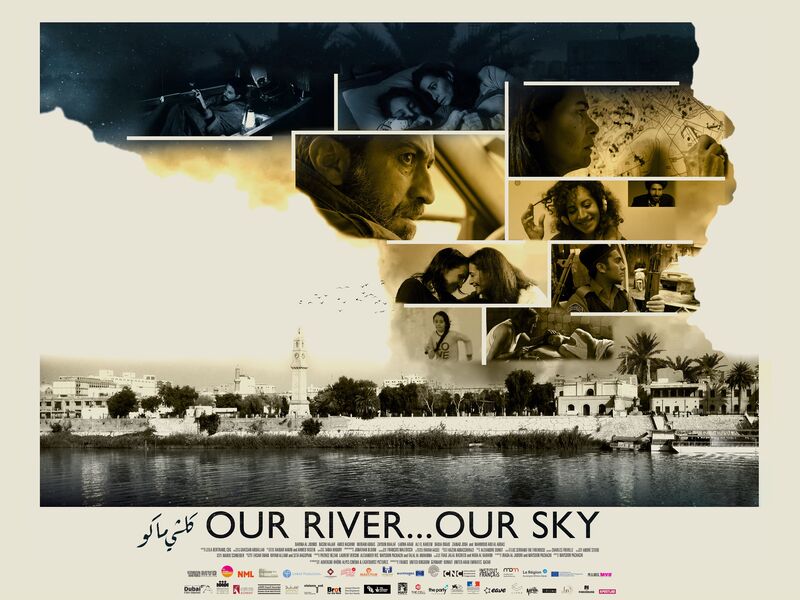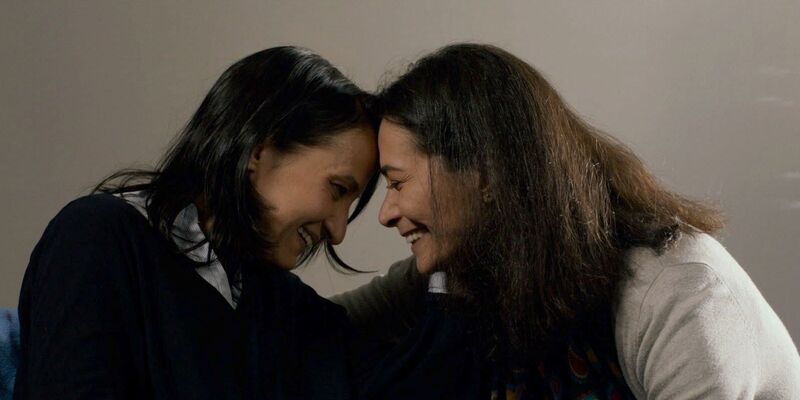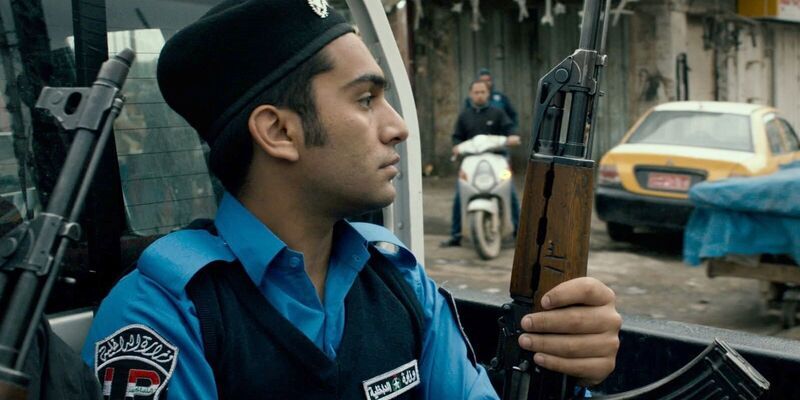
Review by
Benjamin Poole
Directed by: Maysoon Pachachi
Starring: Basim Hajar, Meriam Abbas, Ali El Kareem, Mahmoud Abo Al Abbas, Zaydun Khalaf, Amed Hashimi,
Labwa Arab, Badia Obaid

That thing François Truffaut apparently said contradicting the possibility
of an anti-war film, that "every film about war ends up being pro-war";
there’s something in it, I reckon. The mechanics of battle crucially suit
the spectacular nature of cinema, an art form whose sobriquet ("the
movies") is predicated upon action and dynamic motion. Allowing the
musical, how better to present dramatic activity than the hyperbolic
kinetics of fighting, hulking machinery and the guns guns guns inherent to
war? Nonetheless, I wonder if Truffaut in le paradis du cinema wouldn't be
thrilled by the rejoinder of Maysoon Pachachi's (with co-writing
shared by Irada Al-Jubori) intensely accomplished debut
Our River...Our Sky - a film that is explicitly about war,
and which successfully portrays the on-going effects of combat in a way
that is heartbreakingly and undeniably anti-war.

Set in the last week of 2006 in the run up to Saddam Hussain's death,
Our River...Our Sky depicts several denizens of Baghdad as
they cope with the consistent outbursts of sectarian violence which
characterise the city. And "cope" rather than "struggle" is the operative
verb here, as what is so powerful and paradigm shifting about Pachachi's
film is how accepting its characters are of the death and destruction
which both marks their city and the potentially fatal uncertainty of their
existence.
In an ensemble cast, we follow the intersecting stories of several
different citizens. Our axis is Sara (Darina Al Joundi), an author
whose energies are now compelled towards, pointlessly, recording upon a
thread strewn map the various explosions and killings which occur in the
city. Sara lives with her daughter Reema, and in turn, we meet neighbours
Sabiha, who is a Christian, along with Kamal (a former prisoner-of-war)
with his pregnant wife Mona and her mother Nermeen whose son was
"disappeared." There is Dijla, a manic depressive, and young Tamara, a
college student. Our River...Our Sky does afford focus to
men and boys - Yahya, who is compromised in his job, Haider who is
inevitably drawn into a gang and his dad Abu who just as inevitably turns
to drink - but Pachachi's partiality lies with the women of Baghdad. After
all, it is their bodies which are pulled from the Tigris, who are accosted
by male strangers enquiring about the whereabouts of their headscarves,
and who are deemed fallen women for transgressing whatever sketchy
parameter a man with a knife or a gun or simply a stronger pair of hands
may decide to gravely enforce.

When Sabiha is threatened for her faith by some sectarian thugs, Sara does
begin to consider flight, as do other characters throughout the film. But
Pachachi implies that the Gordian knot is not so easily sliced: where does
one go, how does one get out, what do you leave behind? A father asks his
daughter how she "can dance" with "people dying every day?" In
Our River...Our Sky this simple motion is an act of
self-preservation, of defiance of circumstances which are inescapable.
Chillingly, Reema and Tamara spot a dead man on the way to college, just
another body lying in the gutter, flies already swirling about him. The
girls are unmoved and simply carry on, indicative of a generation where
such awful sights have become commonplace.

Throughout the film, Pachachi's manipulation of the various moving parts
of her narrative - the interweaving plots, the cinéma verité staging, the
perpetual sense of threat - is masterful. Further consolidating the
multifaceted implications of Our River...Our Sky and its
humanist ideology is Al Joundi's megawatt smile: a searing gesture of
human strength in the most dire and dark of situations.

Our River...Our Sky is in UK
cinemas from October 20th.

